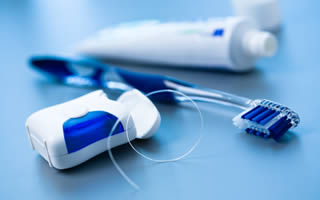Cold And Flu – How These Viruses Can Impact Your Oral Health

With colder weather around the corner, your Wickford dental team examines how seasonal illnesses can affect our teeth and gums
Those of you who use public transport or visit other relatively crowded spaces may well have noticed an increase in the number of people sniffing and coughing. Yes, it’s getting to that time of the year when viruses seem to come out of hiding, and after their ‘rest period’ during the summer, they are ready, and seemingly even more willing, to wreak their revenge on us. None of us enjoy being ill with these viruses, whether it is the common cold or something potentially more serious like flu. When we are ill with them, we tend to focus on relieving symptoms such as coughs, sneezing and runny noses etc, but we may not realise that they can also have a significant impact on our teeth and gums as well.
There are a number of ways that these illnesses can affect our oral health. Most of the potential harm can be limited if we understand these and take action to alleviate the effects. In no particular order then, let us take a look at the ways that colds and flus can harm our oral health and what patients of the Cygnet Dental Practice can do to minimise the effects.
Dry mouth
One symptom of colds and flu is that we are likely to have a blocked nose. This is almost inevitable and means that we tend to breathe through our mouths more. This is especially likely during sleep. Although breathing in this way is necessary to ensure that we get sufficient oxygen, it does also mean that we are very likely going to end up with a dry mouth. As readers of our blogs will know, a dry mouth is likely to mean an increase in potentially harmful bacteria that can lead to gum disease. Drinking plenty of water at any time is a positive thing for our health, but especially at times like this when we are at risk of a dry mouth, we should make a conscious effort to make sure that we stay well hydrated, particularly before bedtime.
As at any other time, brushing our teeth and flossing between them will also go a long way to ensure that our teeth and gums remain healthy as we come out on the other side of our illness.
Sugar Consumption
Sugar causes tooth decay. This is a well known fact, and when we are ill, our sugar consumption is likely to increase. Part of the reason for this is that we are often lacking in the energy required even for the simple things such as getting up to make a cup of tea. Some of us will also have to continue to go about our daily duties of looking after children etc, so a certain amount of energy is required. It is perhaps not surprising then that we often reach for sweet foods to give us a ‘boost’. We are also more likely to eat convenience foods rather than cook a meal from scratch. Many of these, including savoury meals, can have high quantities of sugar to improve the taste and help with preservation too.
Finally, a word of warning about cough sweets and other medications that we might take to alleviate our symptoms. Many of these will contain high levels of sugar, and ones that we suck slowly like cough sweets are likely to be more damaging . There is a danger that, after we have cleaned our teeth and gone to bed, a coughing fit may lead us to reach for a cough sweet to ease the cough. This means that if you do this, your teeth and gums will be coated with sugar all through the night. However tempting it might be, do try to avoid doing this.
Weaker immune system
When we are ill, our immune system comes under attack and is weakened. This may well lead to oral infections, such as gingivitis and periodontitis, to become more likely. There is little that we can do to boost our immune system at this time other than eat as healthily as we can and to rest as much as possible. A good teeth cleaning regime will certainly help though until our bodies become stronger again.
Tiredness and lethargy
One thing that most of us would agree on is that illnesses of this type can leave us really lacking in energy. We have already mentioned the tendency to opt for easy meals rather than fresh ones when we feel like this, but there is an even bigger danger to our teeth and gums. This is due to many of us either easing up, or missing out altogether, the cleaning of our teeth, especially at night. While other factors can affect our oral health at this time, they can be significantly minimised with a good oral health regimen.
No matter how tired and exhausted you are, you should always make sure to brush your teeth, and floss as well, both in the morning and last thing at night. If you have young children, we recommend that our Wickford patients either monitor that they do this themselves, or, if they are very young, do your best to do this for them. This is probably one of the best things that you can do to keep your teeth and gums in good health at this time.
On recovering
Eventually, as we start to recover from our illness, things start to improve. Our mouths are less dry, we eat better and have more energy for doing things that keep our oral health in good shape. If you feel that you have neglected your teeth and gums badly though, or if the illness has lasted longer than expected, you may wish to consider arranging an appointment with the dental hygienist for a thorough cleaning. This will help to restore your mouth health and remove any hardened bacteria that may have accumulated during this time.
We hope that you found this blog useful, and that you manage to avoid at least the worst of these issues over the colder months. If you do need any oral health care advice or wish to make an appointment with us, you can do so by calling the Cygnet Dental Practice on 01268 733078.
